 The distinctives of the theonomic ethic are at least six. Theonomy holds that Old Testament Law (often called “the Mosaic Law,” but actually wider than the Mosaic Law code) is:1. Binding (that is, we are obliged to obey it for our sanctification); and2. Relevant (in that all our Lord does is governed by all-wisdom and all-knowledge, thus making His Word practical for all times and applicable for all situations),3. When properly interpreted (taking into account the full significance, purpose, and situation of the original intent of the various laws individually considered), and4. Properly applied (the flow of redemptive history must be taken into account and the New Testament precepts and principles must be given their full significance.)5. Thus, the details of the Law are essential to Law-keeping (they form an essential part of the Law, as parts to the whole), and6. Are meant to equitably observed by man on the personal, social, and civil levels of human existence.From God’s Law in the Modern World: The Continuing Relevance of Old Testament Law by Kenneth L. Gentry, Jr. pg. 9
The distinctives of the theonomic ethic are at least six. Theonomy holds that Old Testament Law (often called “the Mosaic Law,” but actually wider than the Mosaic Law code) is:1. Binding (that is, we are obliged to obey it for our sanctification); and2. Relevant (in that all our Lord does is governed by all-wisdom and all-knowledge, thus making His Word practical for all times and applicable for all situations),3. When properly interpreted (taking into account the full significance, purpose, and situation of the original intent of the various laws individually considered), and4. Properly applied (the flow of redemptive history must be taken into account and the New Testament precepts and principles must be given their full significance.)5. Thus, the details of the Law are essential to Law-keeping (they form an essential part of the Law, as parts to the whole), and6. Are meant to equitably observed by man on the personal, social, and civil levels of human existence.From God’s Law in the Modern World: The Continuing Relevance of Old Testament Law by Kenneth L. Gentry, Jr. pg. 9
Wednesday, December 23, 2009
Are you a Theonomist?
“Theonomy” is derived from a combination of two Greek words: theos (“God”), and nomos (“law”). It simply means “God’s Law.” Broadly speaking the term describes the Christian ethical position that holds that God’s Word determines what is right and what is wrong, rather than “natural law.” “Theonomy” is generally understood to point out the righteousness and practicality of the Mosaic civil code for modern application.
 The distinctives of the theonomic ethic are at least six. Theonomy holds that Old Testament Law (often called “the Mosaic Law,” but actually wider than the Mosaic Law code) is:1. Binding (that is, we are obliged to obey it for our sanctification); and2. Relevant (in that all our Lord does is governed by all-wisdom and all-knowledge, thus making His Word practical for all times and applicable for all situations),3. When properly interpreted (taking into account the full significance, purpose, and situation of the original intent of the various laws individually considered), and4. Properly applied (the flow of redemptive history must be taken into account and the New Testament precepts and principles must be given their full significance.)5. Thus, the details of the Law are essential to Law-keeping (they form an essential part of the Law, as parts to the whole), and6. Are meant to equitably observed by man on the personal, social, and civil levels of human existence.From God’s Law in the Modern World: The Continuing Relevance of Old Testament Law by Kenneth L. Gentry, Jr. pg. 9
The distinctives of the theonomic ethic are at least six. Theonomy holds that Old Testament Law (often called “the Mosaic Law,” but actually wider than the Mosaic Law code) is:1. Binding (that is, we are obliged to obey it for our sanctification); and2. Relevant (in that all our Lord does is governed by all-wisdom and all-knowledge, thus making His Word practical for all times and applicable for all situations),3. When properly interpreted (taking into account the full significance, purpose, and situation of the original intent of the various laws individually considered), and4. Properly applied (the flow of redemptive history must be taken into account and the New Testament precepts and principles must be given their full significance.)5. Thus, the details of the Law are essential to Law-keeping (they form an essential part of the Law, as parts to the whole), and6. Are meant to equitably observed by man on the personal, social, and civil levels of human existence.From God’s Law in the Modern World: The Continuing Relevance of Old Testament Law by Kenneth L. Gentry, Jr. pg. 9
 The distinctives of the theonomic ethic are at least six. Theonomy holds that Old Testament Law (often called “the Mosaic Law,” but actually wider than the Mosaic Law code) is:1. Binding (that is, we are obliged to obey it for our sanctification); and2. Relevant (in that all our Lord does is governed by all-wisdom and all-knowledge, thus making His Word practical for all times and applicable for all situations),3. When properly interpreted (taking into account the full significance, purpose, and situation of the original intent of the various laws individually considered), and4. Properly applied (the flow of redemptive history must be taken into account and the New Testament precepts and principles must be given their full significance.)5. Thus, the details of the Law are essential to Law-keeping (they form an essential part of the Law, as parts to the whole), and6. Are meant to equitably observed by man on the personal, social, and civil levels of human existence.From God’s Law in the Modern World: The Continuing Relevance of Old Testament Law by Kenneth L. Gentry, Jr. pg. 9
The distinctives of the theonomic ethic are at least six. Theonomy holds that Old Testament Law (often called “the Mosaic Law,” but actually wider than the Mosaic Law code) is:1. Binding (that is, we are obliged to obey it for our sanctification); and2. Relevant (in that all our Lord does is governed by all-wisdom and all-knowledge, thus making His Word practical for all times and applicable for all situations),3. When properly interpreted (taking into account the full significance, purpose, and situation of the original intent of the various laws individually considered), and4. Properly applied (the flow of redemptive history must be taken into account and the New Testament precepts and principles must be given their full significance.)5. Thus, the details of the Law are essential to Law-keeping (they form an essential part of the Law, as parts to the whole), and6. Are meant to equitably observed by man on the personal, social, and civil levels of human existence.From God’s Law in the Modern World: The Continuing Relevance of Old Testament Law by Kenneth L. Gentry, Jr. pg. 9

















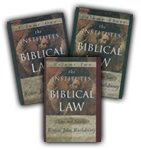






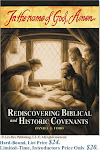



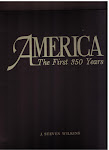
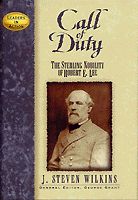




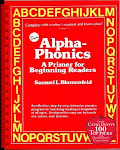
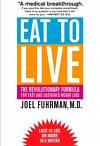


























No comments:
Post a Comment